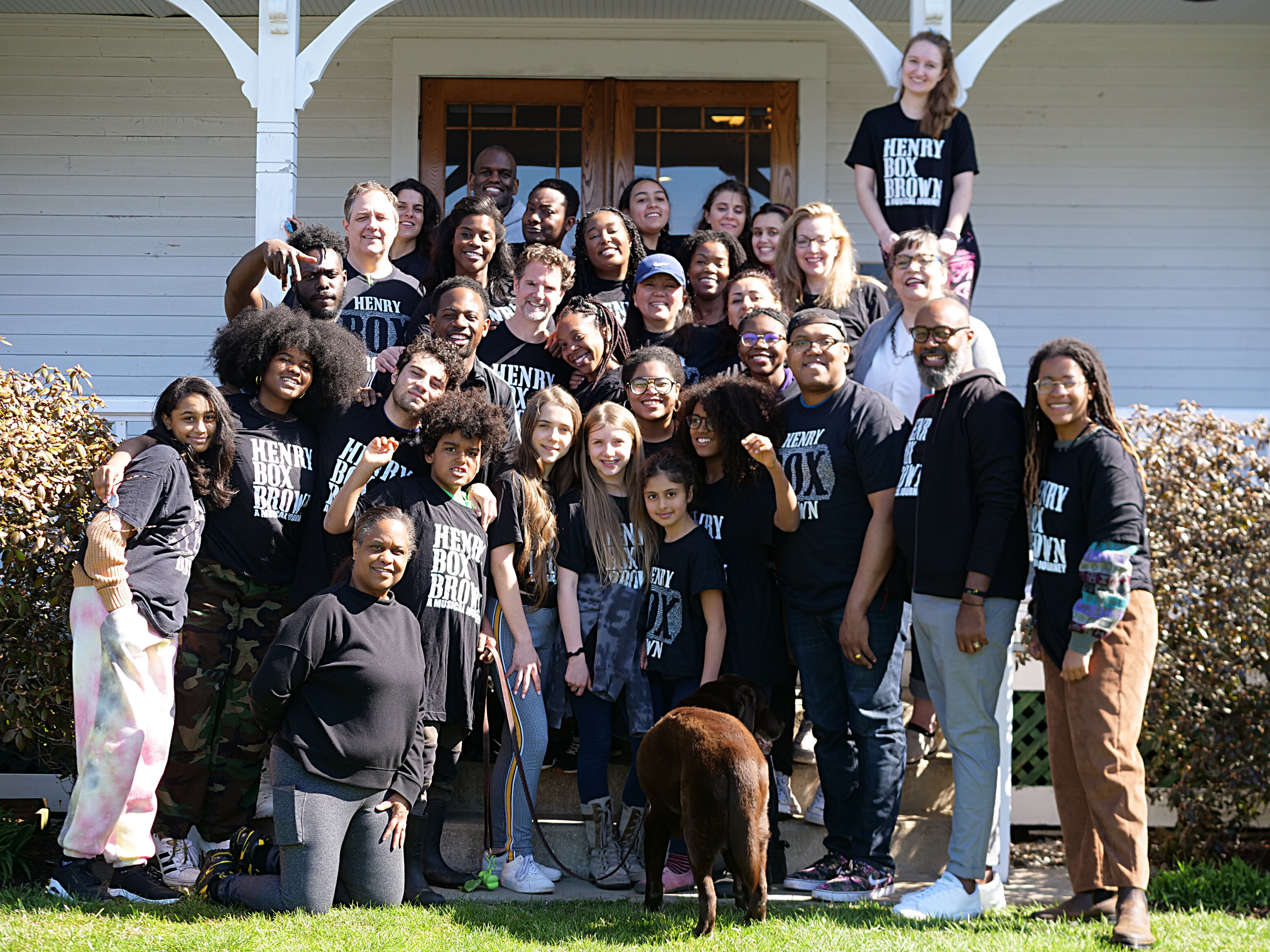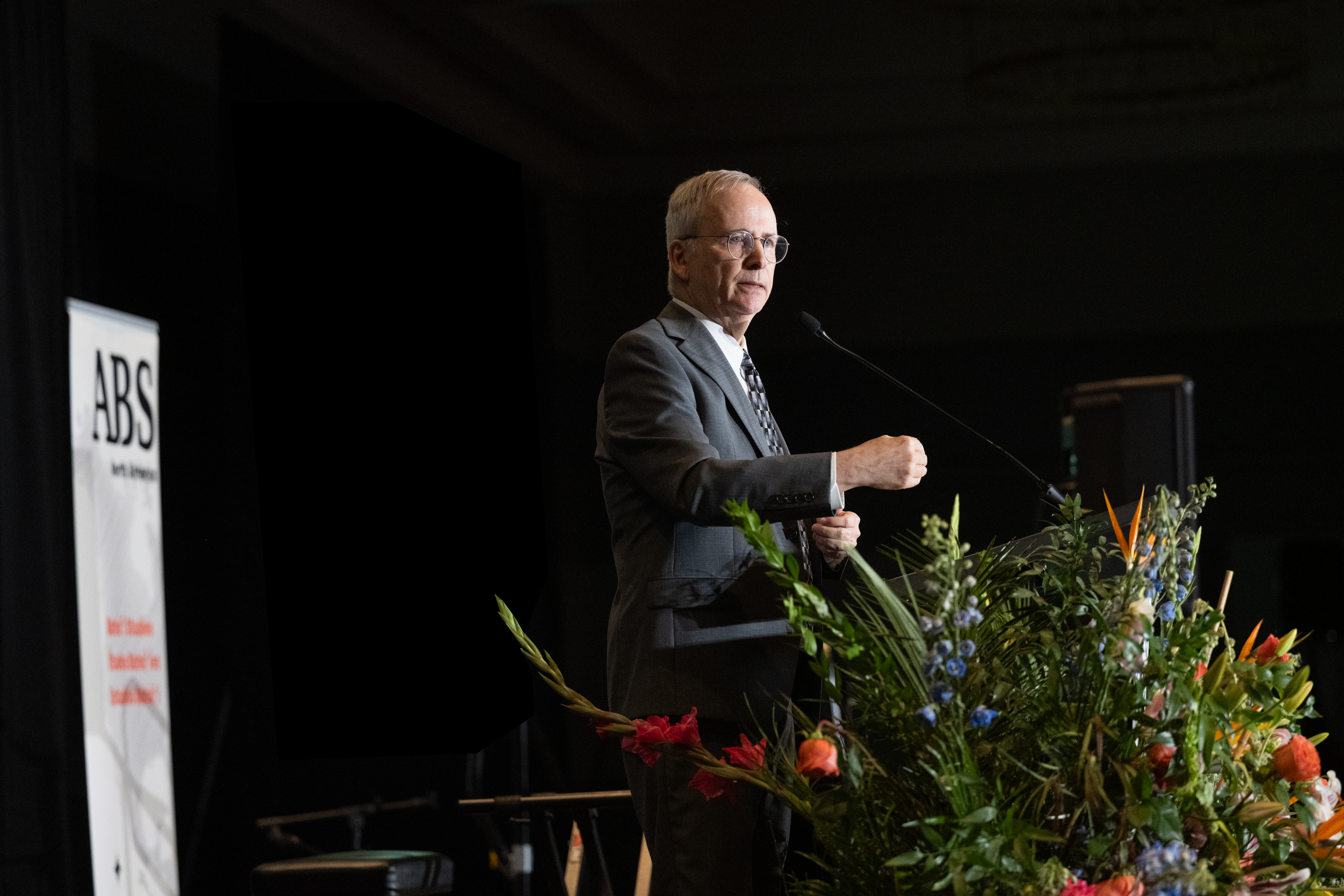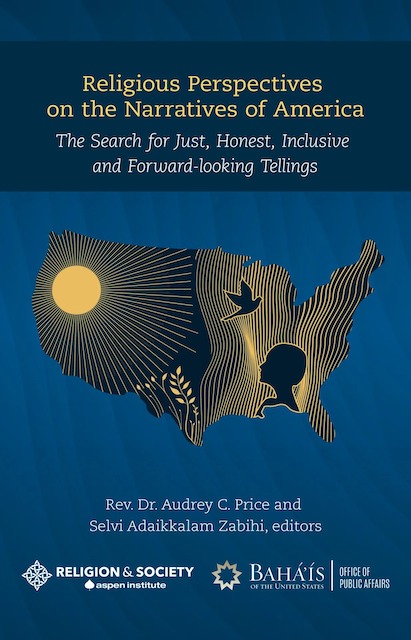
South Dakota scholars discuss race issues with aid of Baha’i principles
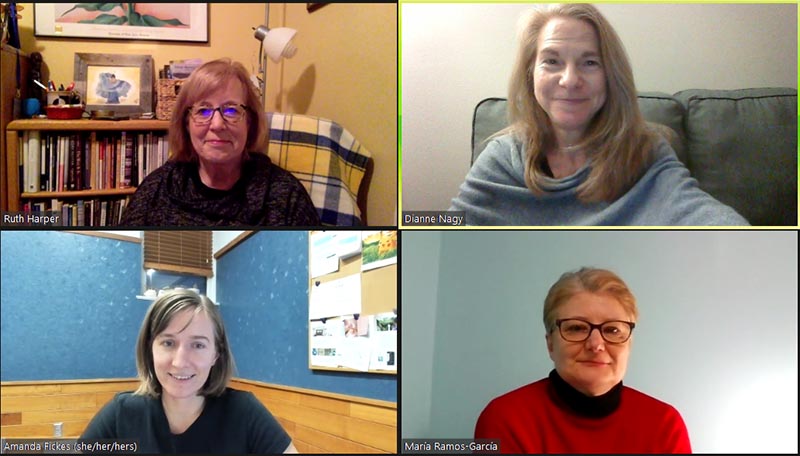
Though it’s 200 miles from Minneapolis, the college town of Brookings, South Dakota, keenly felt the repercussions of George Floyd’s killing in May 2020, and the national turmoil surrounding race.
Dianne Nagy, a Baha’i with considerable experience in local human rights activities, immediately got to work bringing Baha’i-inspired perspectives into the conversation.
One result is a study group with a few colleagues at South Dakota State University (SDSU), discussing issues that surround race and culture in the light of basic Baha’i teachings on human nature. It uses the Ruhi Institute’s Book 1 course Reflections on the Life of the Spirit along with a focused set of questions.
“All the participants are scholars, inherently curious about everything and adept at analysis and critique,” says Nagy, who serves as research integrity and compliance officer at the university. “The weekly Zoom sessions are therefore never dull and often challenge me to reflect on the Baha’i worldview.”
The idea of exploring the spiritual factors underlying racism was part of what drew the group together. Nagy’s invitation “was very appealing to me, as I, too, view racism as a spiritual illness, a soul sickness,” says Ruth Harper, an SDSU professor emerita.
Nagy and Harper also share a civic kinship. The Brookings Human Rights Commission recognized Nagy in October 2020 with the Butler Human Rights Award for many years’ contributions, including the co-founding of the city’s Interfaith Council. Harper is a 2016 recipient of that award.
Even with this and other relationships formed in Nagy’s 20 years at SDSU, it took several outreaches to build toward creation of this study group — all conducted online due to the constraints of the COVID-19 pandemic.
On the Facebook pages of several newly formed anti-racism groups, Nagy shared the June 2020 statement on racism published by the National Spiritual Assembly of the Baha’is of the United States. Later, she posted her own reflection that racism is a spiritual disease. Two groups blocked this post and even banned her from posting again for a time.
The moderators didn’t explain why they blocked her, and Nagy reflects that they might have objected to her suggestion that nothing but the Word of God can inspire souls to address this illness. “This experience of pushback might indicate that some anti-racist activists doubt any religion’s capacity to address racism, perhaps because religious institutions have too often served to justify the oppression of Black and brown peoples,” she says. “It might also stem from the widespread view of racism as a material rather than a spiritual phenomenon.”
Eventually, though, some people showed interest in this Baha’i-informed viewpoint.
Nagy joined a small-group study of the book White Fragility, coordinated by Brookings Reading for Change. She knew the group’s moderator, who was also involved in a forum that published Nagy’s invitation to participate in the study circle.
In approaching the Ruhi course through an anti-racist lens, Nagy was inspired by the story of a Nashville study circle that had used new, race-focused questions for its discussions of the book starting in 2018.
Since that study was geared toward Bahá’ís, Nagy tailored a new set of questions for a wider set of participants, coming up with 23 for Unit One (Understanding the Bahá’í Writings) alone.
Many of these questions focus on the need to go beyond words to engage in actions toward racial amity. For example, the quotation “Let deeds, not words, be your adorning” was studied alongside the question “Who is known for their deeds, not words, in promoting race unity?”
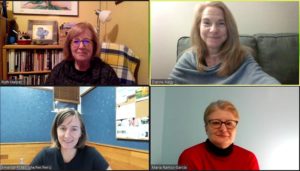
Ultimately, Nagy was one of four people, all SDSU colleagues, who launched the study group in September 2020.
One participant, María Ramos-García, a professor who emigrated from Spain several decades ago, noted that it’s false to assume racism isn’t a problem in the predominantly white town of Brookings. She enjoys white privilege in many situations but sometimes faces discrimination when she speaks Spanish or accented English. Through her volunteer work with Latinx migrants who work on farms in the area, she has witnessed some severe racial inequities in South Dakota.
Ramos-García joined the study because she is “curious about different religions” and believes that “it is part of respecting people to know a little about their background.”
Because some participants are agnostic, the group has questioned a few elements in the course book — for instance, the idea of a Divine Creator, the use of gendered language in the English translations of the Holy Writings (for example, God as “He”), and the concept of an obligatory prayer. As an example of one response, Nagy has set out the viewpoint that Baha’i laws are like prescriptions from a Divine Physician.
Though the Baha’i beliefs face rigorous questioning, Nagy doesn’t feel any hostility. “All four women enjoy the conversations — a welcome act of community building in what for many is a very isolating period due to the pandemic,” she says.
Ramos-García notes that she appreciates the Baha’i teachings on “both self-improvement and trying to improve the world,” noting the emphasis Baha’u’llah, Founder of the Faith, places on “acting rather than just talking about acting.”
Similarly, Harper reflects, “I knew very little of Baha’i writings. In fact, these writings have proved highly useful in offering another way to look at things and generating new thoughts on a difficult subject.”
She adds, “As the oldest person in the group [at 69], I have found comfort in the idea that our lives are a time of learning and preparing for our souls to continue to develop. I have been active in social justice causes for most of my life, and at times I despair of true change. One step forward, two steps back seems to be the discouraging pattern. The Baha’i readings provide a larger perspective.”
A sampling of supplemental questions used in the Brookings study of Reflections on the Life of the Spirit:
Beware, O people of Baha, lest ye walk in the ways of them whose words differ from their deeds.
- How can we ensure that our words and deeds align in promoting race unity?
Truthfulness is the foundation of all human virtues.
- How does truthfulness promote racial justice?
- What role do you see truthfulness having in eliminating notions of racial superiority/inferiority in community building?
Nothing whatever can, in this Day, inflict a greater harm upon this Cause than dissension and strife, contention, estrangement and apathy, among the loved ones of God.
- How do dissension, estrangement, and apathy impede progress toward race unity?
… backbiting quencheth the light of the heart, and extinguisheth the life of the soul.
- How might backbiting exacerbate racial tension?
Speak no evil, that thou mayest not hear it spoken unto thee, and magnify not the faults of others that thine own faults may not appear great …
- How can we help others gain awareness of their implicit racial bias without magnifying their faults?
Immerse yourselves in the ocean of my words, that ye may unravel its secrets, and discover all the pearls of wisdom that lie hid in its depths.
- How does the practice of reading the Sacred Texts morning and evening aid in healing racist attitudes and behaviors?


